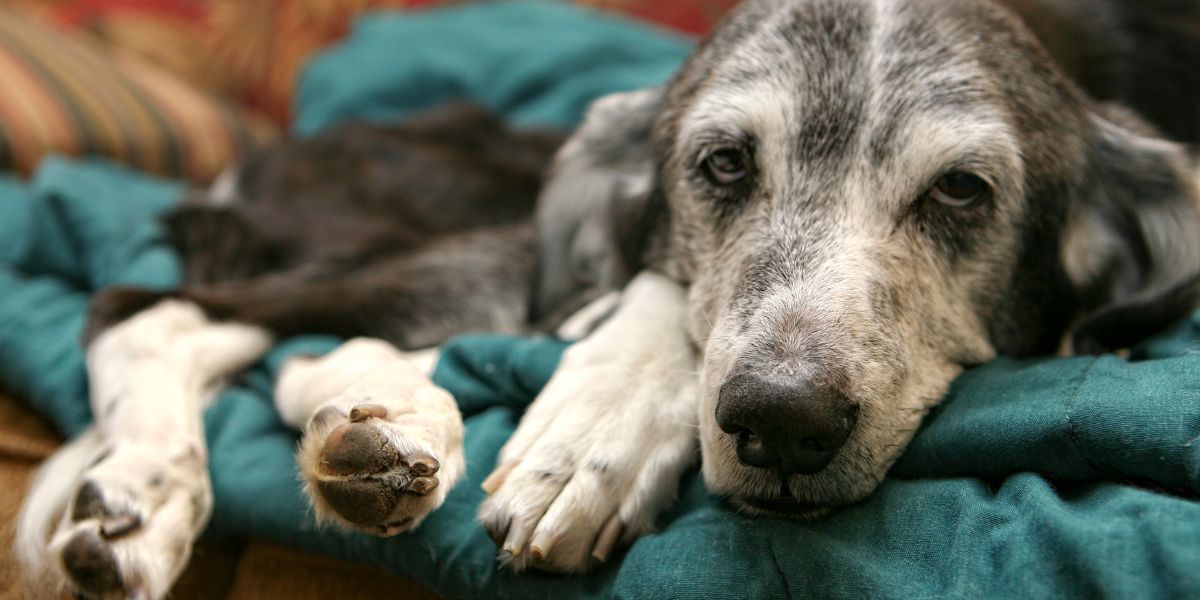Urinary incontinence in dogs – treat the condition with Incurin from Biotur
Urinary incontinence in dogs is a common condition in older dogs. As your pet ages, you will notice specific behaviour, personality, and appearance changes. That is why it is essential to take some preventive measures so that there is no risk of developing certain diseases. External and internal deworming and the complete vaccine schedule are critical to healthy pet life.
In today’s article, we will discuss what urinary incontinence in dogs means, the causes, symptoms and proper treatment for this condition. Biotur is available to clinics, veterinary pharmacies and other specialized stores with the best products for pets and farm animals.
What is urinary incontinence in dogs?
Urinary incontinence in dogs is when the pet can no longer control its bladder, and involuntary urination occurs. This problem develops most often in older dogs, predominantly female dogs. The dog urinates uncontrollably in places not used to doing so. Sometimes, it may just leave some leaks or streaks. It would be best if you did not scold the dog, as this is a medical problem, not a behavioural one. If you notice these unusual urine leaks, it’s time to visit the vet, to make a correct diagnosis. The vet will examine if there is a urinary tract infection or other conditions that could be causing these urine leaks.
Urinary incontinence in dogs – causes
Urinary incontinence in dogs can occur for various reasons. One of the reasons may be represented by the weakening of the muscles that prevent urine from leaking. The dog may also have developed a condition that causes bladder or urinary tract problems. Genital abnormalities may be hidden or show no signs until the pet is over a certain age.
Older females, often medium and large breeds, are more prone to this urinary incontinence. It can be due to old age or another disease which affects the urinary bladder. In females, the urethra and vagina open into a common vestibule area. This, in turn, opens to the outside, the area called the vulva. With age, the bladder muscles and sphincter lose muscle tone, and urine can leak into the common vestibule area. A small amount of urine can be eliminated when the dog makes various movements (stands up or lies down). Because of this uncontrolled leakage, urinary tract infections can occur.
Urinary incontinence can also occur due to hormonal causes (lack of estrogen). In men, a lack of testosterone can lead to urinary incontinence.
Diseases that can cause urinary incontinence in dogs are diabetes, bladder infections, tumours or kidney stones.
Urinary incontinence in dogs – symptoms
Symptoms of urinary incontinence in dogs are an uncontrolled urinary loss. The dog may urinate without realizing it, leave streaks on the floor, or urinate with difficulty. If you notice these symptoms, it is recommended to visit the veterinarian to find out exactly the cause of these urinary leaks.
Typically, a healthy dog should urinate every four to six hours. Some dogs may urinate less often, about every 8 or 12 hours. This happens especially in dogs that live in the apartment and have to wait for their owners to be taken out for a walk. This variation can be determined by diets, physical exercise, the amount of water drunk or the accessibility of the bathroom. Puppies will urinate more often, about once every two hours.
Urinary incontinence in dogs – diagnosis
To determine the cause of urinary incontinence in dogs, a visit to the veterinarian is necessary. It is recommended that you come to the vet’s office with a urine sample so that the vet can analyze it.
Urinary incontinence in dogs – treatment
Urinary incontinence in dogs is treated according to the indications of the veterinarian. The vet will prescribe certain antibiotics or recommend a special diet for urinary incontinence in dogs. Repeated injections or even surgery will be necessary if the condition’s cause is more serious.
Not reacting violently when you notice your pet urinating around the house uncontrollably is essential. Treat the situation calmly and go to the vet for a thorough checkup.
Biotur offers veterinary offices and pharmacies a suitable treatment for urinary incontinence in dogs.
Incurin is indicated for treating urinary incontinence with hormonal etiology due to the insufficiency of the sphincter mechanism in bitches. Do not use in non-neutered bitches, as efficacy has only been demonstrated in ovariohysterectomized bitches. The following dosage scheme is recommended: start the treatment with one tablet/day. If the treatment results, the dose is reduced to half a tablet/day. If the treatment does not provide results, the amount is increased to 2 tablets/day. Certain animals do not require daily administration; the two-day treatment can be tried after the therapeutically effective daily dose is established.



